5083 and 6061 Aluminum Tubes for Shipbuilding
Aluminum tubes are widely used in the shipbuilding industry, mainly for manufacturing hull structures and internal piping systems. The lightweight and high strength of aluminum make it an ideal material for ship construction, helping reduce the vessel's weight and enhance structural strength. Furthermore, aluminum tubes have excellent corrosion resistance, which extends the lifespan of ships and reduces maintenance costs.
Marine aluminum tubes typically use alloys such as 5083 aluminum alloy and 6061 aluminum alloy. MC Aluminum’s products are certified by CCS, BV, LR, and other classification societies. The company currently has over 500 sets of mold profiles and more than 300 specifications in stock to meet different customer requirements.
Introduction to Marine Aluminum Tube Alloys:
5083 Aluminum Tube: Belongs to the aluminum-magnesium alloy series, with magnesium content ranging from 4.0% to 4.9%. Its significant features include excellent seawater corrosion resistance, high tensile strength, and yield strength, especially after welding, where it retains good mechanical properties. Additionally, 5083 aluminum tubes have excellent weldability and formability, making them ideal materials for hull construction and marine engineering.
6061 Aluminum Tube: Belongs to the aluminum-magnesium-silicon alloy series, with magnesium content (about 0.8% to 1.2%) and silicon content (about 0.4% to 0.8%). It has good mechanical properties, relatively high strength, and excellent machinability. After heat treatment (T6 condition), its tensile strength and hardness are significantly improved, and it also has good fatigue resistance. While 6061 aluminum tubes are corrosion-resistant, their performance in long-term marine environments is slightly inferior to 5083 aluminum tubes.
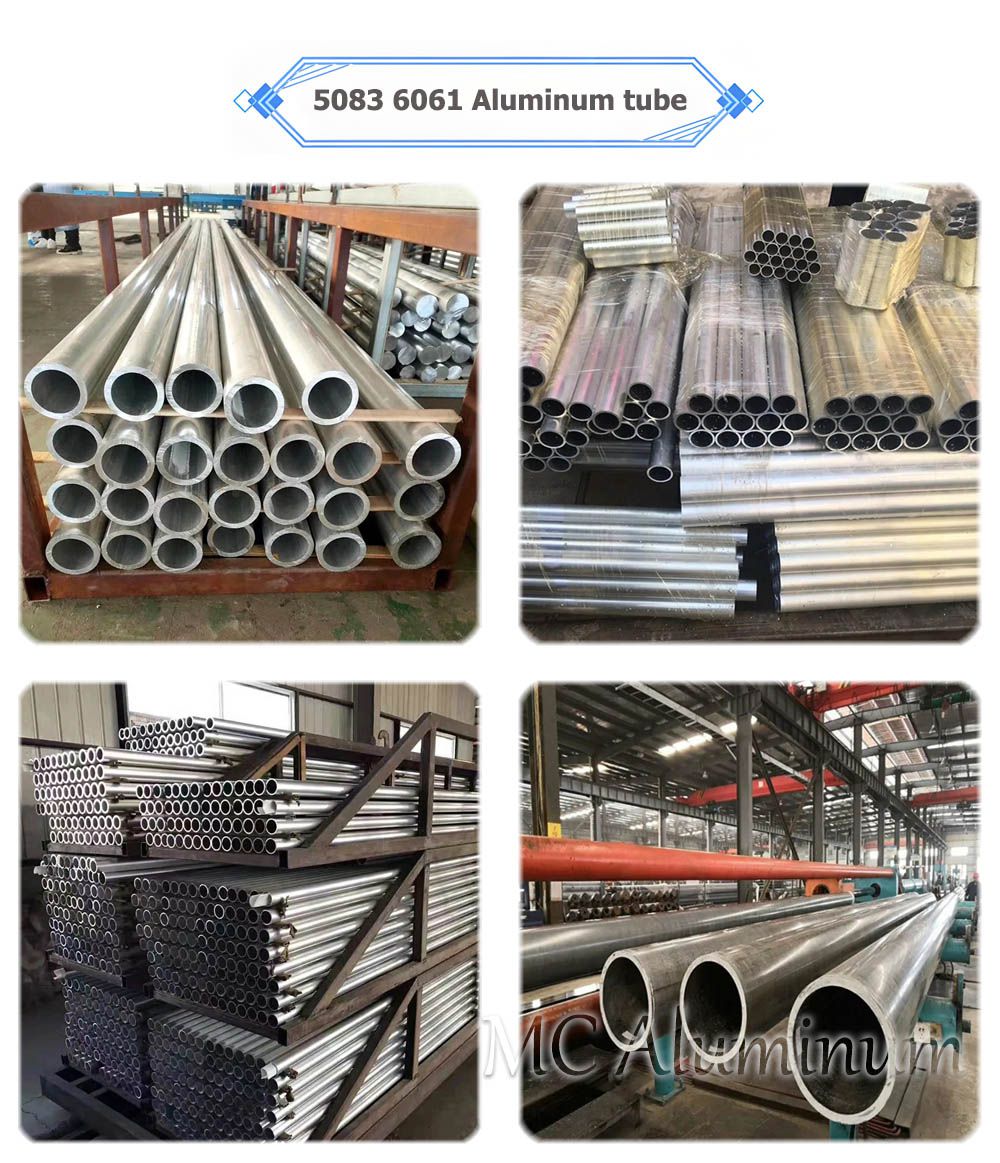
Specifications of Marine Aluminum Round Tubes
| Alloy | 5083, 6061 |
| Temper | T6, H112 |
| Diameter | 8-600mm |
| Thickness | 0.6-150mm |
| Length | 1m, 3m, 5.8m, 6m, 12m, or as per customer requirements |
| Certifications | CCS, BV, LR, ABS, etc. |
| MOQ | 1-3 tons |
| Molds | If your requirements are met, you can use our free molds. We can create new molds based on your drawings, free of charge for orders over 5 tons. |
Chemical Composition of Marine Aluminum Tubes (%):
| Alloy | Si | Fe | Cu | Mn | Mg | Cr | Zn | Ti | Other:Each | Other:Total | Al |
| 5083 | 0.4 | 0.4 | 0.1 | 0.4-1.0 | 4.0-4.9 | 0.05-0.25 | 0.25 | 0.15 | 0.05 | 0.15 | remainder |
| 6061 | 0.4-0.8 | 0.7 | 0.15-0.4 | 0.15 | 0.8-1.2 | 0.04-0.35 | 0.25 | 0.15 | 0.05 | 0.15 | remainder |
Mechanical Properties of Aluminum Profiles
| Alloy | Temper | Tensile Strength (MPa) | Yield Strength (MPa) | Elongation (%) |
| 5083 | H112 | ≥275 | ≥125 | ≥12 |
| 6061 | T6 | ≥310 | ≥240 | ≥10 |
Advantages of Aluminum Tubes Over Traditional Steel
1. Lightweight: Aluminum's density is about one-third that of steel, making aluminum vessels lighter. This reduces engine requirements, decreases fuel consumption, and extends cruising range.
2. Strong Corrosion Resistance: Modern aluminum alloys, such as T6 or 5083 grade, have outstanding corrosion resistance, allowing long-term use in marine environments without rusting or corroding.
3. Low Maintenance Costs: Aluminum vessels have lower maintenance costs because aluminum components are easier to replace and maintain, saving a significant amount in maintenance fees.
4. Reasonable Strength: 6061 aluminum tubes in T6 condition have high strength, capable of replacing some steel components.
5. Good Machinability: Aluminum tubes are easy to shape and weld, making processing costs relatively low and manufacturing efficiency high.
Specific Applications of Aluminum Tubes in Shipbuilding
Hull Structure: Aluminum tubes are used to manufacture various structural components of the hull, such as decks, ladders, masts, etc.
Internal Piping Systems: Aluminum tubes are commonly used in the internal piping systems of ships, such as cooling systems, water supply systems, etc.
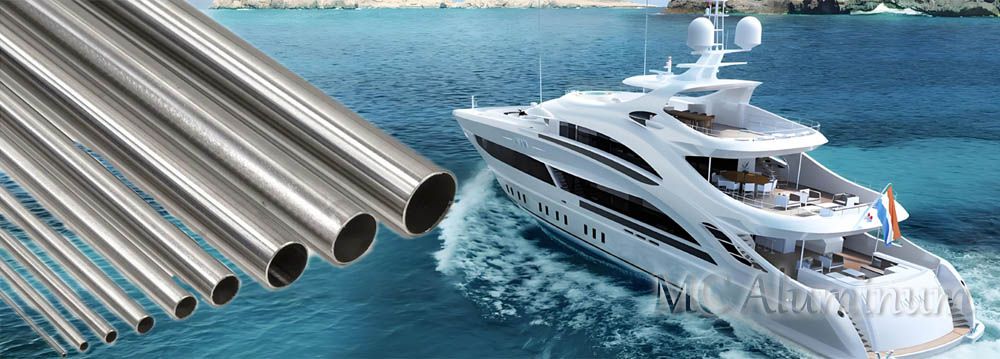
How to Choose the Right Marine-Grade Aluminum Tubes?
It is crucial to select the right material based on the working environment and performance requirements during shipbuilding:
For parts exposed to direct seawater contact or requiring higher corrosion resistance, such as the hull and fuel tanks, 5083 aluminum tubes are recommended.
For structural components that require higher strength and good machinability, such as supports and railings, 6061 aluminum tubes are the preferred option.


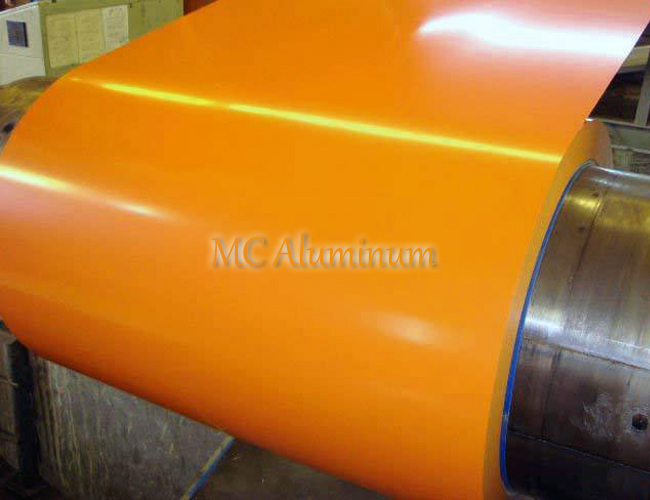


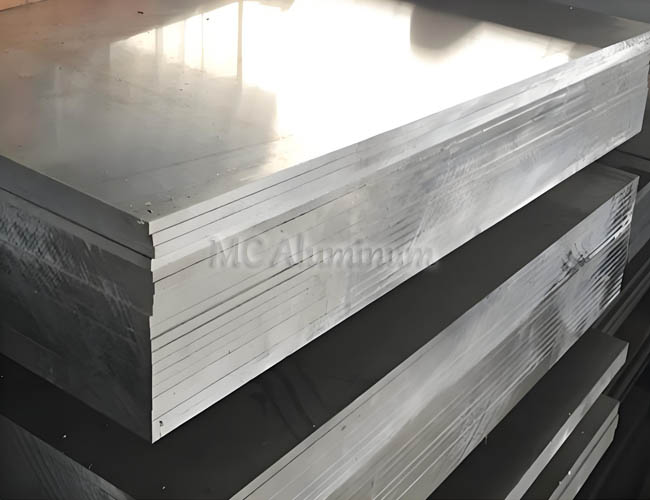
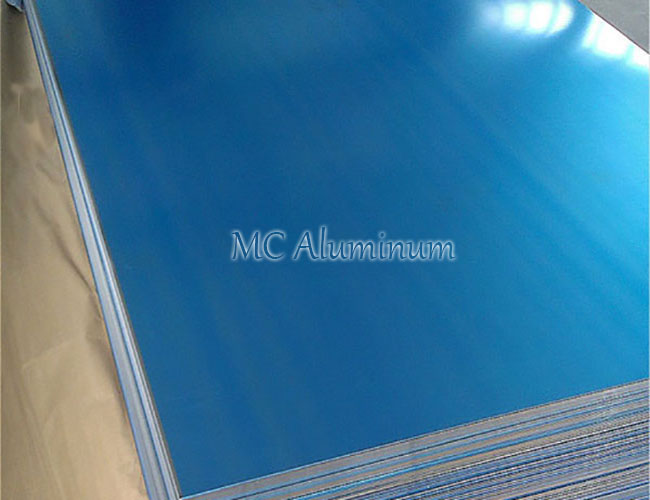
Contact Us